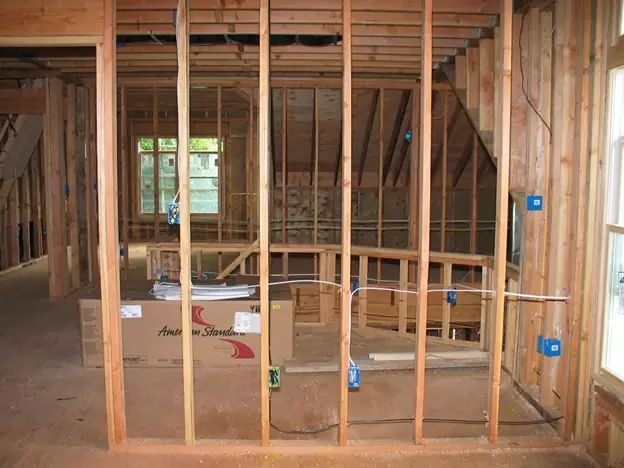Aluminum Electrical Wiring in Toronto: Ensuring Safe and Reliable Connections

Electrical wiring is the backbone of any building's electrical system. While copper has traditionally been the most commonly used material for wiring, aluminum wiring was widely installed in homes and buildings across Toronto during the 1960s and 1970s due to its lower cost and lighter weight. However, over time, aluminum electrical wiring has raised concerns about its safety and reliability. Today, Toronto homeowners and businesses with aluminum wiring need to take extra precautions to ensure their wiring systems are safe and compliant with modern standards.
In this article, we will explore the key considerations related to aluminum electrical wiring in Toronto, including its history, potential risks, solutions, and why it’s important to work with qualified electricians to maintain a safe electrical system.
A Brief History of Aluminum Electrical Wiring in Toronto
Aluminum wiring gained popularity in Toronto and across North America during the 1960s and early 1970s as a cost-effective alternative to copper wiring. At the time, copper prices were soaring, and aluminum offered a more affordable option for contractors building residential and commercial properties. While aluminum has several benefits, including its lower weight and good conductivity, it also presented challenges that were not fully understood when it was first introduced.
As the years passed, electricians and property owners started noticing issues with aluminum wiring, particularly when connections were not properly made or maintained. These issues often led to electrical problems, including overheating and potential fire hazards.
Why Aluminum Electrical Wiring in Toronto Needs Attention
While aluminum wiring itself is not inherently dangerous, it can pose significant safety risks if not properly maintained or if incorrect installation practices were used. Some of the most common problems associated with aluminum electrical wiring in Toronto homes and buildings include:
-
Oxidation: Aluminum is more prone to oxidation than copper. When exposed to air, aluminum forms an oxide layer that can increase resistance at connections, leading to overheating. This can be a major fire hazard, especially in older properties where the wiring has been neglected.
-
Expansion and Contraction: Aluminum expands and contracts more than copper when heated and cooled. This can cause wires to loosen over time, especially at connection points such as outlets, switches, and junction boxes. Loose connections can result in arcing, which is another fire risk.
-
Compatibility Issues: Many electrical devices, outlets, and switches are designed for copper wiring, not aluminum. Using incompatible devices with aluminum wiring can lead to poor connections and overheating, further increasing the risk of electrical fires.
-
Brittleness: Aluminum wiring can become brittle over time, making it more susceptible to breaking or cracking. Damaged wiring can lead to electrical malfunctions and dangerous conditions in the home or building.
Given these potential hazards, it’s essential for property owners with aluminum electrical wiring in Toronto to address any issues proactively. Regular inspections and maintenance are crucial to ensuring the wiring remains safe and functional.
Signs of Aluminum Electrical Wiring Issues in Toronto Homes
If you suspect that your property has aluminum wiring, there are several warning signs that may indicate problems with the system. These include:
-
Flickering Lights: If lights frequently flicker or dim, it could be a sign of loose connections or wiring issues caused by aluminum's expansion and contraction.
-
Warm Outlets or Switches: Outlets, switches, or electrical plates that feel warm to the touch could indicate that the aluminum wiring is overheating. This is a serious warning sign and should be addressed immediately.
-
Burning Smell: A burning or metallic smell coming from electrical outlets or switches can be a sign of overheating wiring or electrical arcing. This requires immediate attention from a qualified electrician.
-
Discolored Outlets: Outlets or switches that appear discolored, especially with brown or black marks, may indicate electrical arcing or overheating within the aluminum wiring.
If you notice any of these symptoms in your home or business, it’s critical to contact a licensed electrician experienced with aluminum electrical wiring in Toronto.
Solutions for Aluminum Electrical Wiring in Toronto
While replacing aluminum wiring with copper is the ideal solution, it can be costly and may not always be feasible, especially in larger properties. Fortunately, there are several alternative solutions that can help make aluminum wiring safer and more reliable:
-
Pigtailing: This involves connecting a short length of copper wire to the end of each aluminum wire at outlets, switches, and junction boxes. The copper "pigtail" then connects to the terminal, which reduces the risk of overheating. Pigtailing is a popular and cost-effective method for improving the safety of aluminum electrical wiring in Toronto homes and businesses.
-
Specialized Connectors: There are specific types of connectors, such as the Copalum crimp connector or AlumiConn, that are designed to connect aluminum wiring to outlets and switches safely. These connectors are approved by safety standards organizations and can help mitigate the risks associated with aluminum wiring.
-
Regular Inspections and Maintenance: Ensuring that aluminum wiring is regularly inspected by a qualified electrician is key to maintaining a safe electrical system. An electrician can identify potential issues such as loose connections, damaged wiring, or overheating and make necessary repairs before they become dangerous.
-
Replacing Outlets and Switches: Upgrading to devices that are rated for use with aluminum wiring, such as those labeled CO/ALR (Copper/Aluminum Revised), can reduce the risk of overheating and other electrical problems.
Why You Should Work with Qualified Electricians for Aluminum Wiring in Toronto
When it comes to aluminum electrical wiring in Toronto, it’s important to work with licensed and experienced electricians who understand the unique challenges posed by this material. A qualified electrician can assess your property’s wiring, recommend the best course of action, and ensure that all work is done in compliance with the latest safety codes and standards.
Hiring a professional electrician not only ensures the safety of your home or business but also provides peace of mind that your electrical system is reliable and up to date. If you live in Toronto and have concerns about your aluminum wiring, don’t hesitate to reach out to a licensed electrical contractor for an inspection.
Conclusion
Aluminum electrical wiring in Toronto is a common feature in many older homes and buildings. While it was once a popular choice for its affordability and lightweight properties, it can present safety concerns if not properly maintained or updated. If your property has aluminum wiring, it’s important to stay vigilant for signs of potential issues and to work with a qualified electrician to ensure your system remains safe and functional.
Whether through pigtailing, installing specialized connectors, or replacing outdated outlets, there are several effective solutions to address the risks of aluminum electrical wiring in Toronto. By taking the necessary precautions and working with an experienced professional, you can ensure your property’s electrical system is safe, reliable, and compliant with modern standards.




